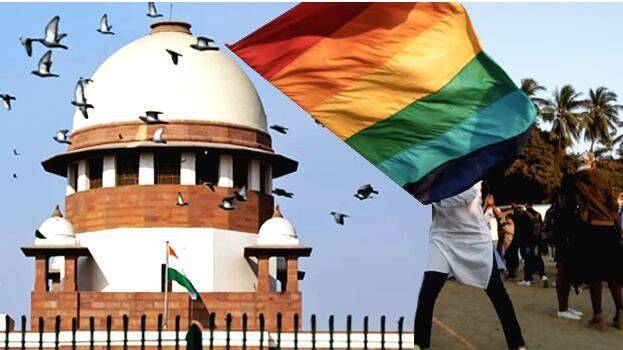

The country was anxiously waiting to know the verdict on the petitions that had been submitted to give legal recognition to same-sex marriage. A five-judge constitution bench yesterday ruled on the petitions that same-sex marriage is not valid in India. There is a majority verdict of three judges against two. While Chief Justice DY Chandrachud and Justice Sanjay Kaul wrote the judgment saying there was nothing wrong with legalizing same-sex marriage, Justices Ravindra Bhat, Hima Kohli, and PS Narasimha came forward with opposing verdicts. Twenty petitions that were submitted demanding the validity of same-sex marriages have been dismissed according to the majority verdict. Four out of five judges prepared separate judgments.
The Center was not at all in favour of the idea of same-sex marriage as it was not compatible with the country's culture and concept of marriage. This was clearly stated during the hearing of the petitions. The judges who opposed this idea held that even if there is no legal obstacle for homosexuals to live together with their partners, the court cannot declare the marriage between them valid. The court also has no jurisdiction to issue a direction on the matter. The majority ruling that only the central government has the authority to make a decision on same-sex marriage and bring a law in Parliament is very relevant. While some countries in the world support same-sex marriage, the public in India is generally not in favour of it. In a country like ours, which has many diversities, castes, and cultures and all of them have different customs, such complex issues cannot be decided easily.
Chief Justice Chandrachud upheld the petitioners' demand to amend the Special Marriage Act to include same-sex marriage. According to the existing law in the country, only marriage between a man and a woman is recognized. The court has no authority to decide on the demand to include same-sex couples in the special marriage law. The court also cannot strike down the Special Marriage Act. Even though same-sex couples have already been recognized by the courts, marriages between same-sex couples cannot be recognized under current law.
It is intertwined with many complex problems. It is also an issue that has serious implications for society. Validating same-sex marriage has many problems that must be solved. Legal issues may arise in matters such as adoption, insurance, bank transactions and inheritance. The social order followed by the country for centuries cannot accept same-sex marriage. The Special Marriage Act does not recognize same-sex marriage, even though the right to decide who to be a partner is individual.
The general public along with the central government will certainly welcome the court's position that they do not have the authority to cancel this law and include same-sex lovers in it. The Center is not bound to consider the suggestions put forward by Chief Justice Chandrachud and Sanjay Kaul about the petitions as the majority verdict prevails. Petitioners can take solace in the fact that the controversial issue of same-sex marriage has been made a topic of discussion before the public. They will have to wait a long time for the changes of time.